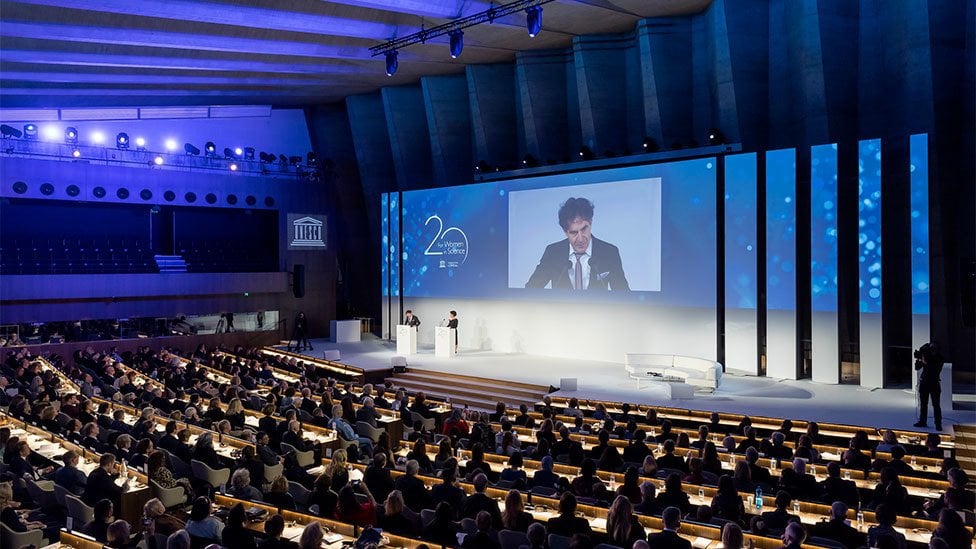L’Oréal – UNESCO: A commitment by men to support women in science
During the 20th anniversary of For Women in Science, the L’Oréal Foundation and UNESCO (United Nations Educational, Scientific and Cultural Organization) gave their program a renewed drive by announcing the Male Champions for Women in Science initiative. At a time when less than 30% of researchers worldwide are women¹, men in the scientific community have a key role to play in changing the system from within.

A charter based on practical commitments
In the spirit of the United Nation’s HeForShe initiative, the program launched by the L’Oréal Foundation and UNESCO in March 2018 aims to accelerate change and improve access to equal opportunities for women in science by creating a coalition of male allies. For Jean-Paul Agon, Chairman and CEO of the L’Oréal Group, the project “aims to give women more opportunities in different ways, such as access to grants, recruitment and recognition of excellence.”
To achieve that, UNESCO and the Foundation have created a charter of commitments, with every volunteer agreeing to encourage collaboration between men and women in science. How? The commitments take various forms: providing access to grants, changing an institution’s policies for recruitment and performance assessments, improving women’s representation in publications and copyright, and providing mentoring. Concrete measures like these will help to counter gender stereotypes and subconscious prejudices and improvements can be monitored by gathering relevant statistics.
To take matters further, and to provide a sense of perspective, the L’Oréal Foundation and UNESCO will publish an annual report on progress in gender balance in science.
Leading men in science sign up
To date, more than 20 eminent male scientists have joined “Male Champions for Women in Science”. Among the leading figures are Professor Alain Fuchs, Chairman of the Université Paris Science et Lettres, and Professor Serge Abiteboul, Research Director of France’s national computer science research institute (INRIA) within the École Normale Supérieur. Cédric Villani, a Fields medal-winning mathematician and member of the LREM party in France’s National Assembly, has also joined the movement. He believes that men should take a proactive approach to helping women take their rightful place in science. “We cannot be satisfied with just creating favorable conditions and then hoping things will just happen on their own,” he argues. “More needs to be done to accompany and to support women. They should also be encouraged to publish regularly, without always waiting to fully complete their research.” Moreover, scientists like Mark Ferguson, Director General of the Science Foundation Ireland, or Tom Welton, Dean of the Faculty of Natural Sciences at Imperial College in London, have also joined the program.
The initiative has been welcomed by Étienne Klein, Research Director of the material science research laboratory at the CEA (French Atomic Energy Commission). “Obviously, I support this. It is empirical and unquestionable,” he declared, adding that going back to Ancient Greece, Plato imagined a republic where “nothing prevented women from reaching the very highest positions.”
Beyond the question of gender parity, Alexandra Palt, Chief Corporate Responsibility Officer and Executive Vice President of the L’Oréal Foundation, highlights the fact that “the world needs science, and science needs women. It’s not just a question of gender equality, it’s about ensuring that we carry out the best possible research.”
¹Source: UNESCO report on science in 2030 (published 2015)